Quo Vadis (1951)
“People will believe any lie, if it is fantastic enough.”
|
Synopsis: |
|
Genres, Themes, Actors, and Directors:
Review: … but bogged down by an unrealistic (would-be) romance between luminous Kerr and wooden Taylor, who made a career comeback with this film but isn’t particularly compelling: Ustinov, on the other hand, holds nothing back in his performance as infantile Nero, who believes every word of flattery spoken to him by his advisor, Petronius, and is authentically convinced the world is lucky to be graced by his presence: Oscar-nominated Genn is perfectly cast as Petronius, whose contempt for Nero is thinly yet effectively veiled. However, I’m not sure why a random subplot about a slave (Marina Berti) throwing herself at Genn is included in this overly lengthy (nearly three-hour) movie, other than to showcase yet another beautiful woman in the cast: This is also likely the reason for one of Nero’s spurned lovers (Rosalie Crutchley) showing up every now and then: … though at least her character (freedwoman Claudia Acte) was a real-life figure and a significant influence in Nero’s life. Meanwhile, Laffan has great fun playing Nero’s lascivious wife Poppaea, who lusts after Taylor and seeks vengeance when he rejects her: Kerr is gorgeous, but not given much depth in a role that simply requires her to be a devoted Christian and (eventually) a willing partner to Taylor: The most impressive sequence is the burning of Rome, which according to TCM required months of construction to build and 24 evenings to burn down. The most controversial scenes, however — earning the film an X certificate in Britain — were those of lions tearing into Christians to provide a spectacle for Nero’s masses: Speaking of Nero and his masses, Ustinov is given a number of chilling lines to recite. In addition to justifying the burning of Rome simply to foster his creative “genius”, he ignores Petronius’s warnings and decides to blame the Christians for his misdeeds:
Yikes. While Quo Vadis isn’t must-see viewing for all film fanatics, it’s worth a look both for the impressive spectacle it puts forth, and for Ustinov’s portrayal as one of history’s most powerful sociopaths. Notable Performances, Qualities, and Moments:
Must See? Links: |


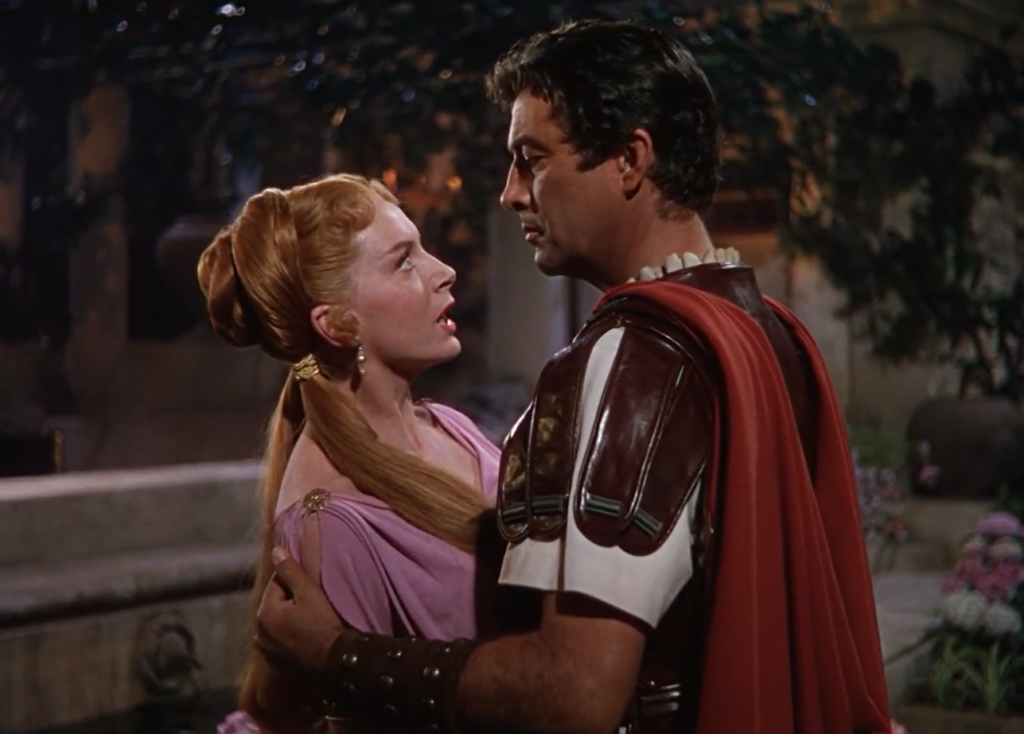

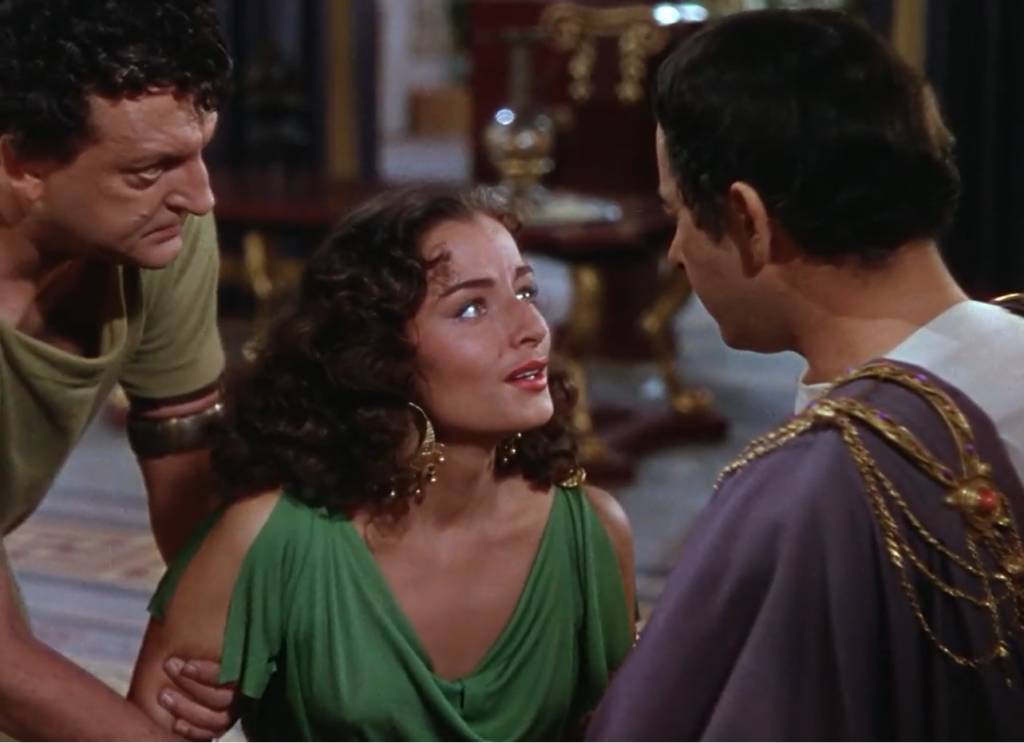

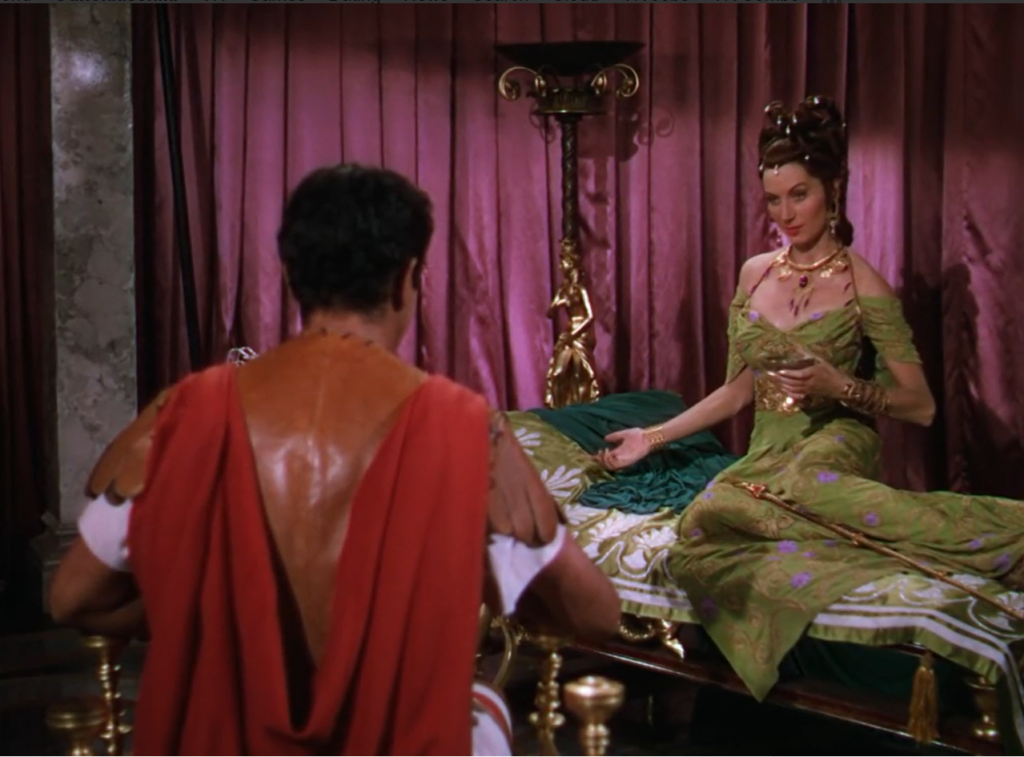
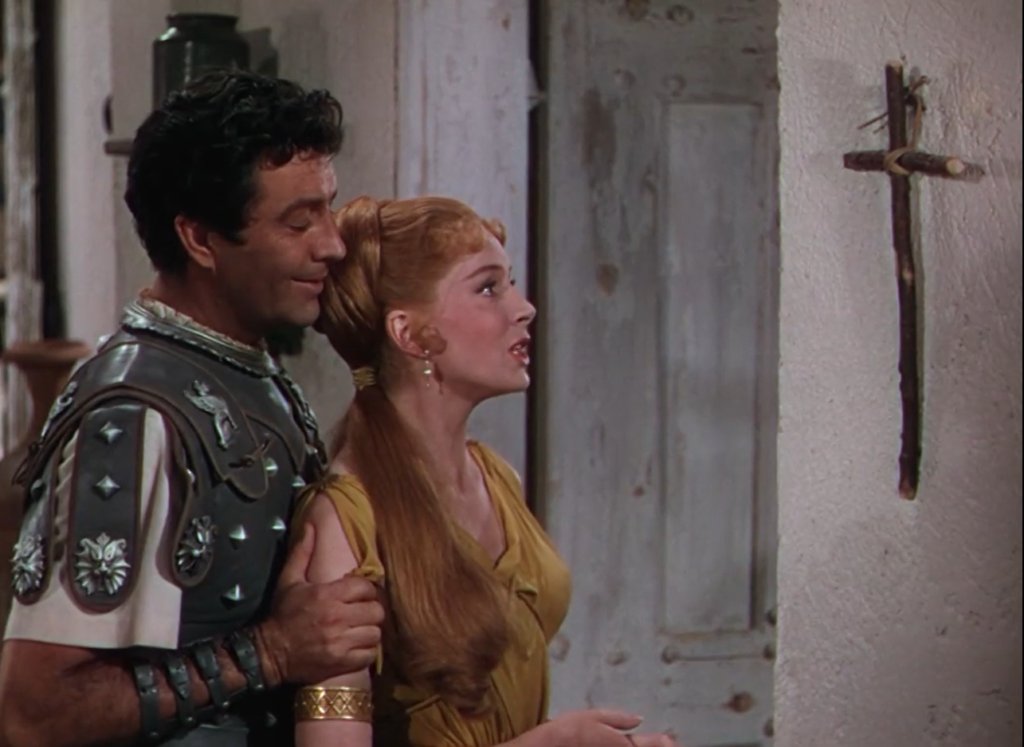



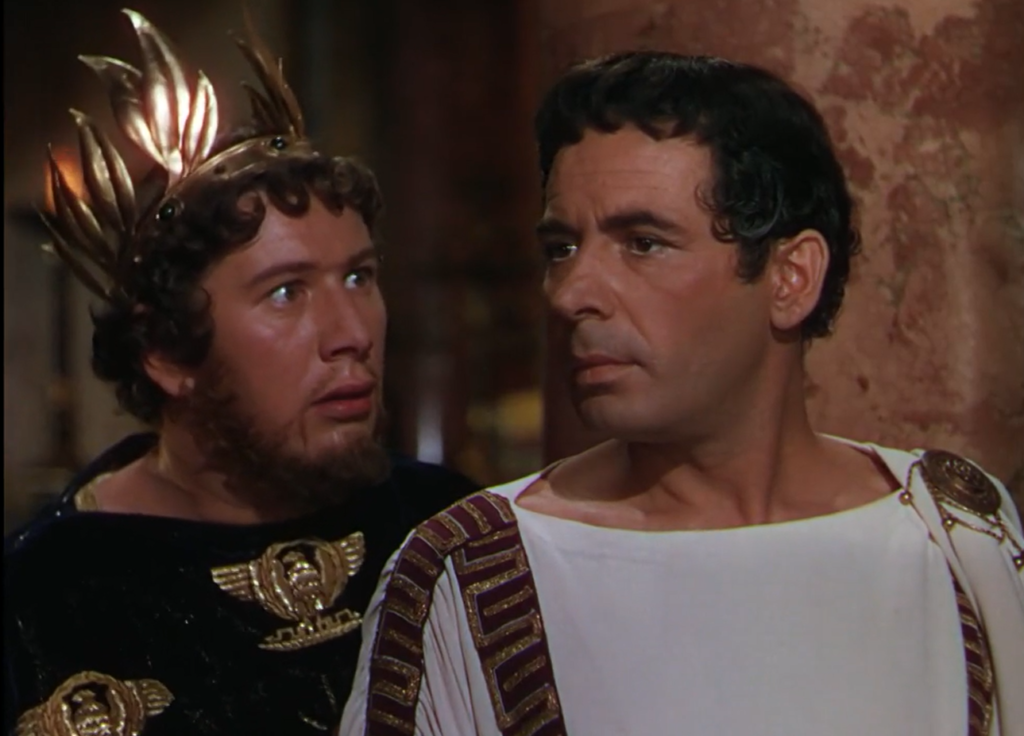
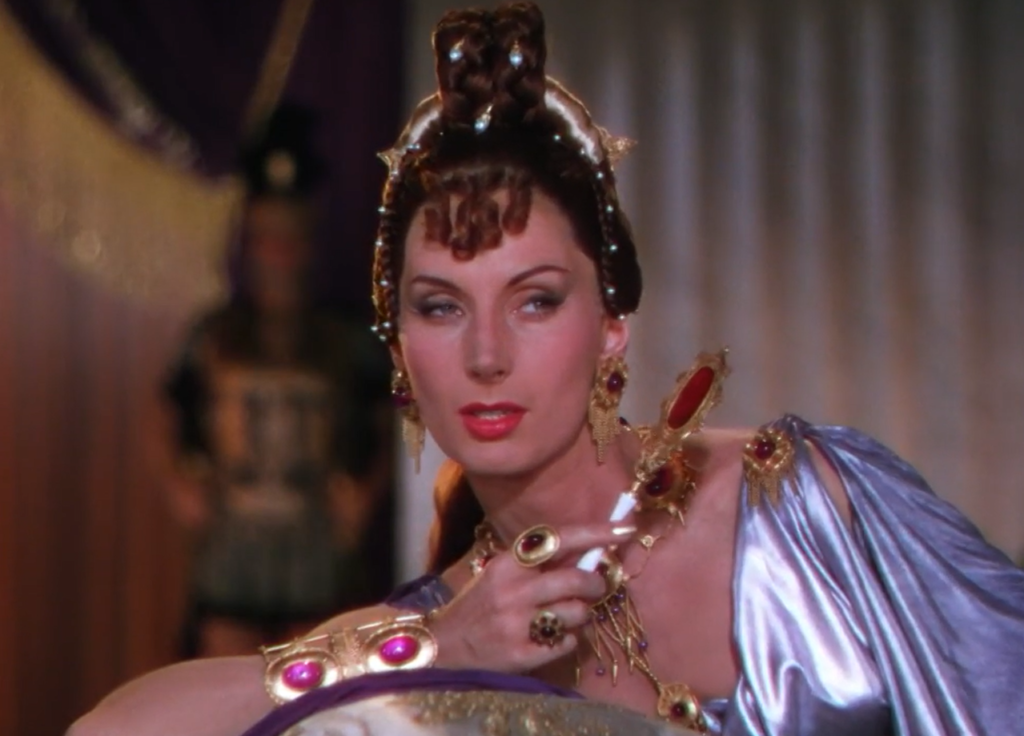
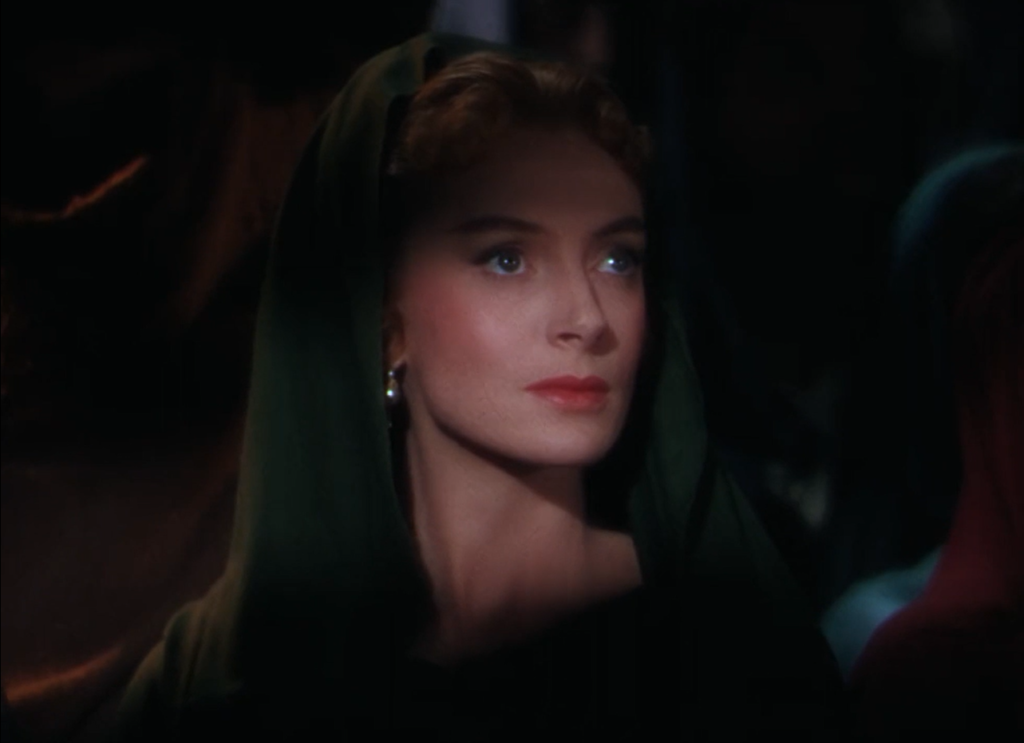


One thought on “Quo Vadis (1951)”
Agreed; not must-see, for reasons brought out in the well-observed assessment.
I remember the film rather well, as it was one which was often televised when I was a kid, so I saw it a number of times. (It’s not one I would particularly want to sit through again.) It’s true that what stands out most is Ustinov’s performance – but that doesn’t make it must-see.